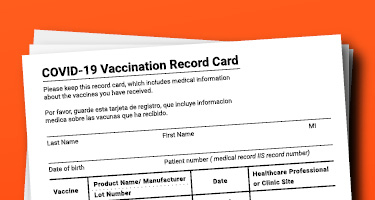Returning to Work in Connecticut: Phase 1 Guidelines
Governor Ned Lamont has approved a phased reopening of Connecticut businesses. Phase 1, set to begin on May 20, 2020, will by no means, however, be a return to normal. With a mandate that everyone adhere to all social distancing guidelines and wear a face covering when leaving their homes, the workplace in Connecticut will look different for some time. Guidelines have been issued by Governor Lamont specific to each work sector operating in the state. Guiding principles for each are the same: (1) safety; (2) science; (3) preparation; (4) choice; and (5) dynamic, allowing for rapid change if the public health situation changes.
The Phase 1 opening allows restaurants (outdoor only), retail and malls, outdoor recreation, offices, hair salons, outdoor museums and zoos and university research to resume on limited basis beginning on Wednesday May 20, 2020. Working from home wherever possible is still encouraged. In all cases, to reopen, the workplace must be able to comply with all guidelines issued by the state or delay reopening until compliance is possible. Building common areas, including elevators and lobbies, must be prepared for social distancing. All business are required to self-certify their compliance with the state prior to reopening. An on-line system is being developed for that purpose. A summary of the guidelines for each, and specifically for offices, restaurants and retail, is summarized below. To read the full guidance issued by Connecticut, please click here.
Applicable for All Phase 1 Openings
- Prior to reopening, the workplace must be thoroughly cleaned, including all entrances, lobbies, bathrooms, kitchens, hallways, elevators, door handles, equipment and furniture.
- A plan for reopening must be prepared and distributed to all employees, including the distribution of sector-specific guidance issued by the state.
- A program administrator must be appointed to ensure rule implementation.
- Signs encouraging social distancing, handwashing, disinfecting and use of PPE must be posted throughout the workplace.
- Daily health checks must also be conducted by employers, and employees should confirm daily that they are not experiencing any COVID-19-related symptoms.
- Employees who are sick should remain home.
- Develop a cleaning and disinfecting checklist, and ensure employees understand who is responsible for implementing the plan.
- Clean and disinfect bathrooms frequently, multiple times a day. During busy times, clearing should be done hourly. A cleaning log should be maintained.
- Employees, independent contractors and subcontractors should be trained in workplace rules and proper protocols on cleaning and how to use cleaning products and disinfectants safely.
- Increase ventilation rates for all indoor work.
- Provide PPE for all employees, independent contractors and subcontractors, including proper facemasks or cloth face coverings that completely cover the nose and mouth. Face masks or cloth face coverings must be worn by all employees, independent contractors and subcontractors in all common areas, including lobbies, elevators and bathrooms. An employee may choose to use his/her own face covering over that provided by the employer.
- A log of employees on work premises should be maintained to aid with contact tracing.
- Shifts and break times should be staggered and capacity limited to 50 percent.
- Place hand sanitizer at the business entrance and in common areas.
- Put disposable disinfectant wipes near all shared equipment and surfaces for employees to use to disinfect after each use.
- Businesses must post clear signage that includes the state hotline (211) for employees and customers to report potential violations.
- Whistleblower protection is provided to any employee who reports a COVID-19-related safety or health concern.
Offices
- All employees should continue to work from home where possible.
- Visitors should be limited and must wear a face mask or cloth face covering that completely covers the mouth and nose or be denied entrance.
- All shipping and deliveries should be confined to a designated area.
- Ensure that all desks are at least six feet apart and place partitions between employees if it is not possible to maintain a six-foot distance between work stations.
- Create work zones within the office, and limit movement between zones.
- Install visual social distancing markers that encourage employees to remain six feet apart.
- Close all non-essential amenities, such as break and coat rooms.
- Manage the number of people in elevators by creating lines with social distancing markers placed six feet apart and using elevator attendants.
- Face masks/cloth face coverings may be removed only once an employee is at his/her individual work station.
Restaurants
- Restaurants may only open for outdoor dining.
- All bars, including those outdoors, must remain closed.
- Governor Lamont has issued an Executive Order allowing for relaxed permitting and zoning regulations to permit outdoor dining and liquor service and expanded outdoor seating capacity.
- All indoor areas must remain closed to patrons.
- Restaurants must ensure that they do not exceed 50 percent capacity.
- Tables must be spaced at least six feet apart.
- Use contactless payment options whenever possible.
- Reusable menus are not permitted. Menus must be paper/disposable or written on a chalkboard/whiteboard.
- Place visual social distancing markers where necessary.
- Close all buffet and self-service stations.
- Close non-essential amenities, such as dance floors, pool tables and playgrounds.
- Create work zones for servers and minimize overlap.
- Employees should not share equipment (such as cooking vessels) where possible. If shared, equipment should be thoroughly cleaned between each use.
- Rearrange kitchen workstations so that employees do not face each other and can remain six feet apart.
- Silverware should be rolled or prepackaged.
- Condiments should be limited to single-use packets or containers.
- All employees are required to wear a face mask or cloth face covering that completely covers the nose and mouth at all times. Gloves are also required for table servers and must be replaced often.
- All customers are required to bring and wear masks or face coverings that completely cover the nose and mouth. Face masks/coverings may be removed only to eat or drink.
Retail and Malls
- Retail stores are encouraged to have designated hours for vulnerable populations.
- Physical barriers should be installed at all checkouts where possible.
- Use contactless payment options whenever possible.
- Dressing and fitting rooms must be closed.
- Signs must include notice to customers that they may not enter if experiencing symptoms of COVID-19.
- Employees should be assigned to a station and remain there throughout the day.
- Employees should maintain six feet distance from other employees and customers.
- Install visual markers for social distancing.
- Non-essential amenities should be closed.
- Employees should not share equipment where possible. If shared, the equipment should be thoroughly cleaned between each use.
- All employees are required to wear a face mask or cloth face covering that completely covers the nose and mouth at all times.
- All customers are required to bring and wear masks or face coverings that completely cover the nose and mouth. Face masks/coverings may be removed only to eat or drink.
- In addition, for malls (defined as any building that has stores without egress to street/parking lot):
All dining areas must be closed. Food and drink places may serve take-out only unless they have an outdoor egress with outdoor seating. In those cases, they must comply with restaurant guidelines.
Security must be increased to enforce rules.
Valet services are prohibited.
Satellite restrooms should be closed. Only main restrooms should remain open.
Entrances should be made for single-direction flow only (i.e., either in or out).
Employers’ Bottom Line: Connecticut businesses eligible for Phase 1 reopening on May 20, 2020 should be familiar with the sector-specific rules issued by the state. For some employers, remaining closed may be more cost effective than reopening. Business that do reopen should remain flexible and work with employees as issues arise and to instill best practices. Employers should pay special note to other laws, such as the Americans with Disabilities Act and the Connecticut Fair Employment Practices Act, which protect those with disabilities, as well as leave laws, including the Family and Medical Leave Act and state and federal paid leave laws which may provide employees the ability to take both paid and unpaid time away from work. Additionally, whistleblower protections remain in effect and may be of particular significance in a time of public health crisis and increased stressors.
If you have any questions regarding this Alert, please contact the authors, Johanna Zelman, jzelman@fordharrison.com, Sami Asaad, sasaad@fordharrison.com, Michael Harrington, mharrington@fordharrison.com, and Elizabeth Smith, esmith@fordharrison.com, all attorneys in FordHarrison’s Hartford office.
FordHarrison is closely monitoring the spread of Coronavirus and associated federal and state legislation and has implemented continuity plans, including the ability to work remotely in a technologically secure environment when necessary, to ensure continuity of our operations and uninterrupted service to our clients. We are following all CDC guidelines and state and local laws as applicable. We are committed to ensuring the health and welfare of our clients, employees, and communities while continuing to provide our clients with the highest quality service. Please see our dedicated Coronavirus Taskforce and Coronavirus – CARES Act pages for the latest FH Legal Alerts and webinars on Coronavirus and workplace-related provisions of the CARES Act, as well as links to governmental and industry-specific resources for employers to obtain additional information and guidance. For more information or to be connected with a Coronavirus Taskforce or CARES Act attorney, please contact clientservice@fordharrison.com.
































